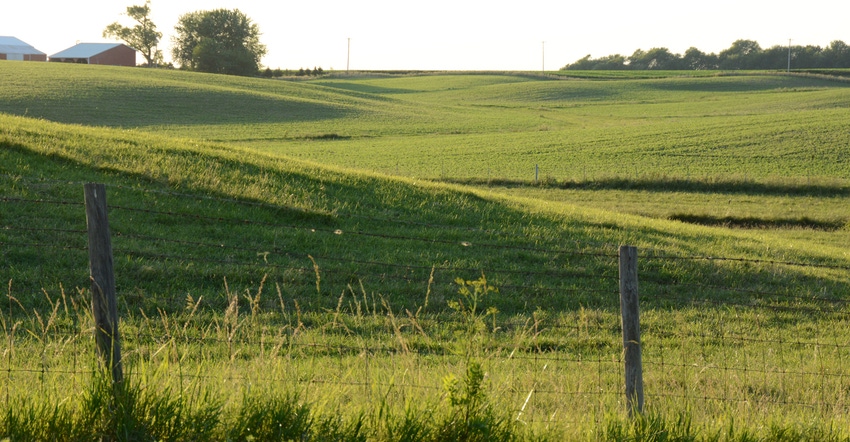
Stepped-up basis is one of those tax principles that has a great deal of influence on a farm’s financial management — but like a lot of tax principles, it’s also pretty complicated. Curt Ferguson, longtime estate planning attorney from Salem, Ill., helps break it down:
What is basis? Generally speaking, basis is what you paid to acquire an asset. Basis can change. It goes down if you depreciate some of what you paid off your income taxes, or it goes up if you invest more money in capital improvements. Think: Basis is what I’ve invested in this and never deducted from my income taxes.
What does stepped-up basis mean exactly? When assets are reported as part of a person’s taxable estate at death, the value reported becomes the new basis. Often that value is more than the original investment. “Basis adjustment” is better terminology, because basis can step down if the value of the asset is less on the date of death than what you have invested in it.
What is an example? Stepped-up basis means if you bought land for $400,000 several years ago (so $400,000 is your basis) and it’s worth $2 million when you die, the basis when your kids get it is reset to the value on the date of your death — so in the kids’ hands, their basis is now $2 million. The $1.6 million of gain more or less disappears and will never be taxed.
So, how much capital gains tax will they pay? Nobody pays capital gains tax on it, even if a farming heir buys from nonfarming heirs. Stepped-up basis saves your heirs a ton in capital gains tax.
How does it work for equipment? Let’s say you paid $1.5 million for the equipment you have. You have depreciated all of the purchase price off your income taxes. So your basis is now zero. But when you die, that equipment is actually worth $1 million. If your estate is properly administered, there will be documentation to show the $1 million value, and your kids’ basis is stepped up to that amount. They will be able to re-depreciate that equipment over a seven-year period, essentially lowering their taxable income by about $143,000 per year.
How important is stepped-up basis to farmers? Losing stepped-up basis would really hurt farmers who have any nonfarming heirs, since the nonfarming heirs will want to sell their inheritance. It also reduces options for the farming heirs who want to move assets: sell land here, reinvest elsewhere.
Are these rules changing? There have been proposals to do one of two things with the basis adjustment law, both of which would hurt farms.
One is to simply eliminate the basis adjustment. That $2 million in land the kids inherit would still have the $400,000 basis. The biggest problem isn’t when they inherit it, but when they sell it — even to a sibling.
Say the two kids inherit the property equally, $1 million each. Each gets half of the basis from the parent, so $200,000. One works out a deal to sell his half to the other. The one selling will receive the $1 million and pay capital gains tax on $800,000 of it. If the kids aren’t farmers, maybe they sell the $2 million to a neighbor. In that case, they each pay capital gains tax on $800,000. As for the equipment, if there is no basis adjustment, then the kids would not be able to re-depreciate it.
And what’s the other proposal? The other was to tax the gain at the time of death. In other words, the farmer’s estate would pay capital gains tax as if he sold the $2 million of property to his kids and recognized $1.6 million of gain at the time of death. Taxing the capital gain at the time of death would be devastating. In essence, that would be re-enacting a new form estate tax through the capital gains tax system.
Another proposal was to tax capital gain at the same rate as ordinary income, 39.6%, if the gain recognized is over $1 million. So the tax could be well over $600,000 on that $2 million of land. Similarly, the $1 million of equipment would be taxed as if Dad sold it to his kids for $1 million, so instead of tax deductions for depreciating the equipment, they have to pay about $400,000 in tax to receive the equipment.
These tax increase proposals included various exemptions and deductions to try to make them less onerous for a small farm. But if any are enacted, they would dramatically change the picture for passing a farm from one generation to the next.
About the Author(s)
You May Also Like






